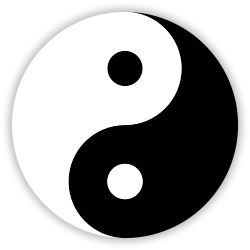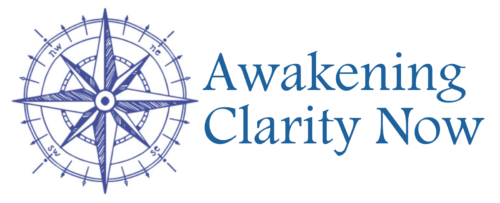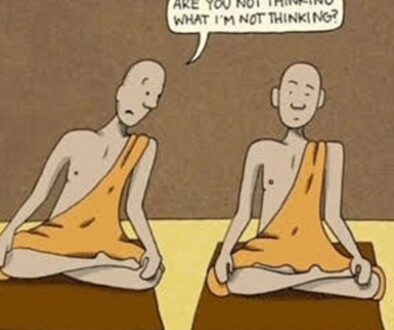What It Means to Be “Awake” from the Nondual Perspective by Lloyd Pfleuger, PhD

WHAT IT MEANS TO BE “AWAKE” FROM THE NONDUAL PERSPECTIVE
By
Lloyd Pfleuger, PhD
If a non-dual teacher calls somebody awake, what does it mean? This is a great question. In the first place it is pretty rare in my experience that even those exalted, often robed, flowered, and celebrated figures up on the stage ever say another living being is “awake.” In most spiritual organizations there is, frankly, only room for one awake being, i.e., the guru him or herself. The enlightenment game is seemingly zero sum. The guru basically looses if there are students who suddenly challenge his unique stature. There must be some favored students, often the wealthy, who are making great progress and are close to the goal. But they never get there. There is infinite distance to cover, as with Zeno’s paradox of dichotomy, and the Guru is always ahead, as in Zeno’s paradox of Achilles and the tortoise.[1] The teacher and the organization are always unchallengeable, distant, and as time goes on increasingly divine, leaving ardent seekers thirsty and in the perpetual, fragrant dust.
There are exceptions to every rule: Fred Davis, for example, a little known non-dual teacher, claims a backwards teaching: first he awakens students, and then over some period of time, counsels them, as needed, on the questions that arise as awakening seems to fade and return, oscillating, as it were, towards integration. This sort of teaching is usually very personal, unsuitable for mass production, more’s the pity. In this situation what could Fred possibly mean by congratulating a new student on awakeness or referring to ongoing students as awake?
Non-dual traditions are often quite aware of the problem of language—vexing and almost insurmountable, since awakening is beyond subject/object dualism and language is entirely built on separating out realities into subjects and objects and dividing the experience world into nouns, verbs, actors, actions, and objects of action. By definition, any non-dual reality cannot be expressed in ordinary language. So, there is infinite room for confusion. One easily sinks in the quicksand of ratiocination vigorously attempting to talk oneself out of such confusion. A good swift slap with a stick is thought in some circles to be a sovereign remedy. Even so, Zen/Chan circles report plenty of trouble in the monastery when or if a student awakens, even though there is a tradition of the Rinzai Zen Master bestowing inka or official recognition of dharma transmission, such that the student is trusted to teach. Inka, however difficult and rare, also bestows deadly jealousy and potential egotism in its wake if one is to believe the myth of Huineng. In some sense it is just the beginning of authentic practice. Humans, it turns out are, all too human.
The easiest solution for a spiritual teacher today is to never acknowledge the awakening of a student—keep them all in line, keep them all guessing, submissive and useful. Keep them from the dangers of egotism and jealousy, and rebellion. You could do worse. Allow certain students to represent the master in certain ways with certain deference. And it is far from certain that any wake up anyway. Modern life is contrary to the mental rigors of ancient traditions of training. Even transmission of a few mindfulness techniques, a mantra, a chant here or there would seem to give students what they are looking for: some succor, some settling down, some boost to their overly stressed material lives. Good show.
However, the backwards teaching approach of awakening first, awakening directly, and immediately—though it sounds difficult and unlikely, also seems to break all the rules: soon there are too many awakened. The teacher’s stance becomes one of humility, honesty, and service rather than unapproachable divinity. He claims to be more of an unteacher. When questioned about his method he often admits that basically he has no idea how it works. But something works. The student, having awakened, shines with surprise and confusion and likely, in post-awakening with bouts of arrogance or depression. The cryptocurrency of non-dualism rises and falls, at least for some time. What can it possibly mean for the teacher to acknowledge his relatively new student as awake?
It has been said in the Advaita Vedanta tradition that an awakened Master, a true Guru, is not really necessary until the student has in fact awakened. Yes, by tradition the Master deigns at some point to bestow his grace, by touch, by word, or by even a glance when the student, after long, long service and spiritual practice is ripe. Boom! (As Seung Sahn says.) But after that moment of insight, the real work begins: somehow the student must integrate the insight. Only someone who has had such all-important awakening, can clarify what the hell has happened. In Vedanta: The Guru may say: Tat tvam asi: That thou art! Or, as appropriate, other traditional great sayings. And then stand to answer questions for a long time. The world has turned upside down and inside out.
Awakeness, awakening is understood as a change in identity, in identification. A deep seeing into the nature of identity. When the so solid earth quakes beneath one, a person who has never experienced this natural phenomenon naturally freaks out. That which was solid support for all of life, suddenly becomes Jell-O. Rolling Jell-O. Security drops away. The mind stands still and then is catapulted into endless worries. Likewise, identity is so basic and often so threatened, most people instinctively feel that one should not mess with it. Gender identity, for example, in present Western society is a huge source of emotional and social and legal conflict. What could be more basic than gender and genderquake? Awakenessquake could.
A sudden tectonic shift from ego to openness has many aftershocks. Solid ego has sustained a serious blow, the most serious. Intellect has seen through the emperor’s clothes: there is nothing wearing them! The clothes around the empty core are just habits, conditioning, words, and concepts. There is no there there. Just here-and-now-ness. As the process continues intellect sees though itself to openness. A multitude of hard and fast ideas that bolstered a false sense of identity arise like clouds before the sun—one by one, with the lucky help of a unteacher, they keep dissolving back to the light of openness. Intellect itself is seen as a set of problem-solving programs, autonomous and limited in the light of awakeness, and no longer under the illusion of control. Mind, like heartbeat and digestion, slowly learns to function behind the scenes as a supporting organ like the rest, no longer main protagonist, or emperor, but nakedly humble, almost invisible.
Fred suggests that awakeness is always now. It is not a steady state or characteristic of somebody or ever some body. It is not a student’s possession. It is now or nothing. There is no inka certificate to hang, no enlightened laurels to rest on. Yesterday’s awakeness is merely vague memory. In fact, it is the one thing that cannot be remembered. Only objects can be recalled. Spiritual experiences, delicate or dramatic are also objects, not to be confused with awakeness. Awakeness is the gap between object cognitions, the gap beyond the mind itself. The mind can learn to bow down to it, to allow it room, as it were, to take it on faith—because it cannot even touch the hem of its garment. Mind cannot know awakeness. (Nor, actually can awakeness know mind. )[2]
If the teacher recognizes his own awakeness in a student, there is nothing to crow about. Not for the teacher, who has done nothing to make it happen and not for the student who understands nothing (finally). Fred calls it luck. This openness can come as a shock, as tears, as laughter, as a gentle smile of coming home. A home he or she has never left. Beyond that there is life in paradox, not paradise.
What does awake mean? It has meaning only in the moment: and the meaning is no meaning at all. It is meaninglessness. It is not destructive anomie, but the loss of a false center. The need for meaning, like pain, is a call for help, a sign of dislocation, being lost. The answer is not for one to gain meaning, a soothing solid dogma, and hold on for dear life, as a non-dual absolutist or any other type of fundamentalist. Ask your dog about the meaning of life, ask the robins or the pines, the running stream. The search for meaning is the signature of the unnatural, the mind spinning out of bounds. Meaning is not the pearl of great price. It is another object to stuff into the ego’s hoard. Beyond that is being. Beyond that is non-being. Beyond that is awakeness. Ae you awake?
[1] Aristotle’s Physics discusses these paradoxes attributed to the philosopher Zeno with respect to understanding the concept of motion.
[2] This is difficult to discuss. In a certain sense it is the opposite: awakeness does know the mind. However, even this turnabout is perhaps too facile: awakeness does not know in the same way the mind knows. Rather it is the way the sun knows the solar system: it lights it up but does not cogitate over it. Or perhaps the way a mirror knows a reflection: the reflection seems to be in the mirror but think again—nothing is in anything. The mirror does not know the reflected object. As the famous haiku goes: The wild geese do not intend to cast their reflection/ The water has no mind to receive their image. — Zenrin Kushu.





May 24, 2021 @ 12:39 am
Thanks Lloyd! I’m so glad somebody else says the clothes have no emperor (so funny, in the usual version, “somebody” is still getting the credit, even if it’s for being a bad emperor). And don’t get me started on awakeness! It had to originally be a pointer about how it is any/everyone’s, as completely and easily done whatever the station (emperor has nothing on it!). And only Awakeness can recognize how simple yet poingnant pointers become the (crypto!)currency of the ego realm. Thanks for a nice free swim in the water of easily allowing, yet naturally re-equilibriating, still…ness
May 24, 2021 @ 4:29 pm
Hey Mike,
Thanks for the reflection. Swimming can get tiresome, diving is always exciting. Once I noticed that upon diving consciously, the mind naturally went blank at the very moment the head hit the water! What? I had to dive again and again to see what was going on. The slap, I reckon, is quite close to the “hit” of the Zen kyosaku “encouragement stick” (especially when it is unrequested). It is not just refreshing physiologically, but even more so mentally, because, for a moment at least, mind stops. Blankness. Everything swims and floats in that. In this way “oscillation” or the diving process of “remisidentification and return” is also a blessing.